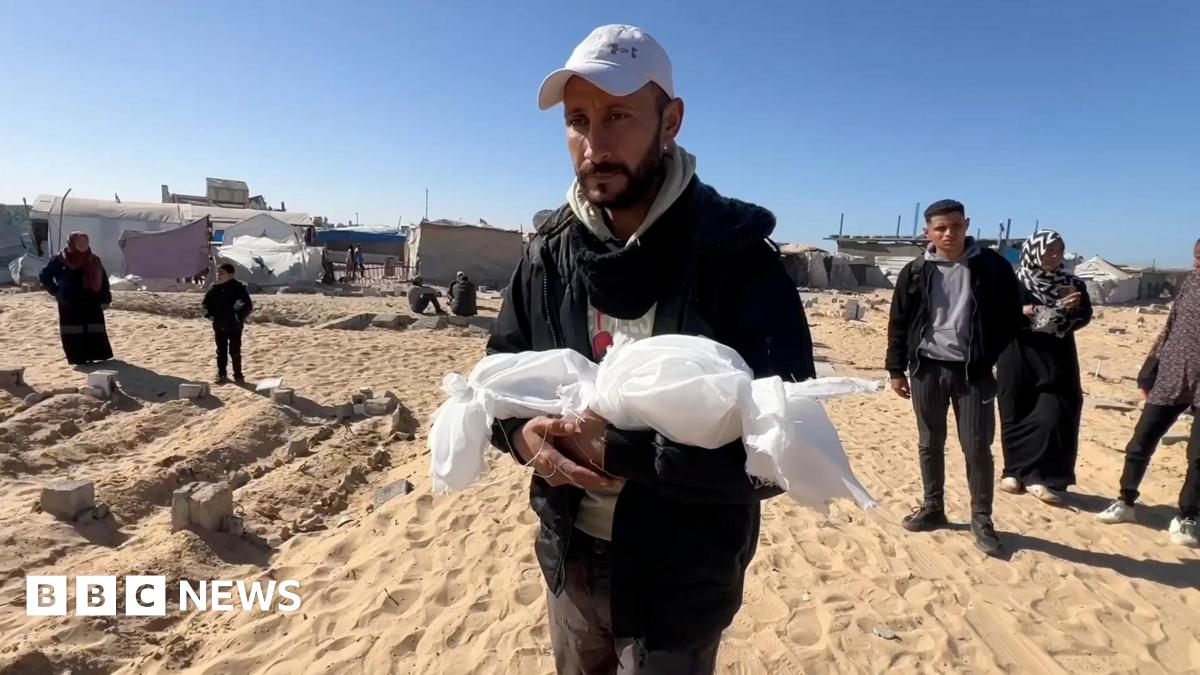“I never thought I would give birth living in a tent, in such cold and freezing conditions, with water dripping on us. Water would leak into the tent, pouring down on us. At times, we had to run to escape the water – for the baby’s sake,” says Nariman.
Still, Sila was born without complications.
“Her health was good, thank God, Suddenly, she started to be affected by the cold,” says Nariman. “I noticed she was sneezing and seemed to get sick from the cold, but I never expected she would die because of it.”
Sila was admitted last Wednesday to Nasser hospital in Khan Younis, where Dr Ahmad al-Farra, the director of its paediatric department, said she had suffered from “severe hypothermia, leading to the cessation of vital signs, cardiac arrest, and eventually death”.
“[On the previous day] as well, two cases were brought in: one was a three-day-old baby and the other was less than a month old. Both cases involved severe hypothermia, resulting in death,” says Dr Farra.
Babies have an underdeveloped mechanism for maintaining their own body temperature and may develop hypothermia easily in a cold environment. Premature babies are especially vulnerable, and Dr Farra says Gaza’s medics have observed an increase in the number of premature births during the war.
Mothers are also suffering from malnutrition, leaving to them unable to breastfeed their babies sufficiently. There is also a scarcity of infant formula because of humanitarian aid deliveries being restricted, according to Dr Farra.

